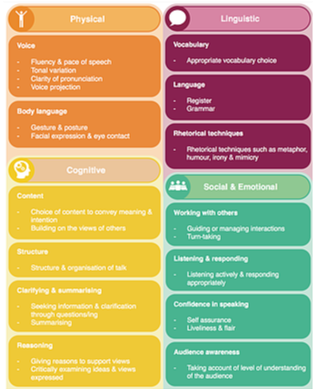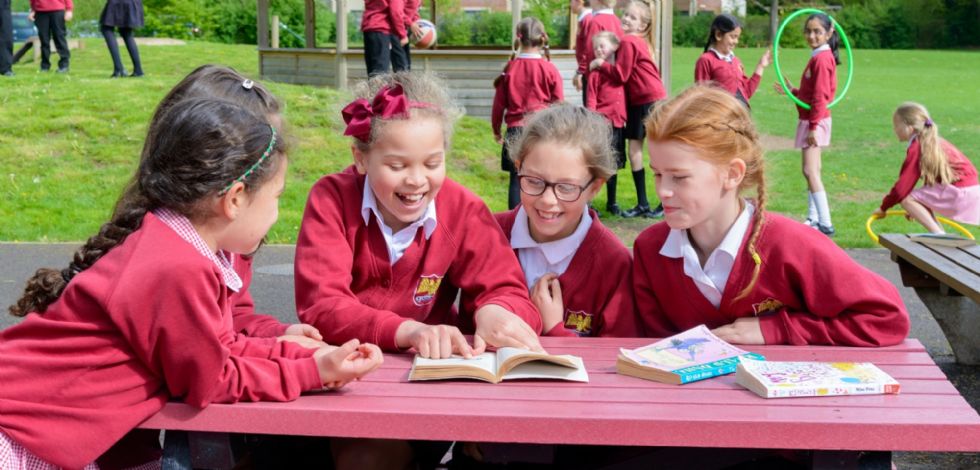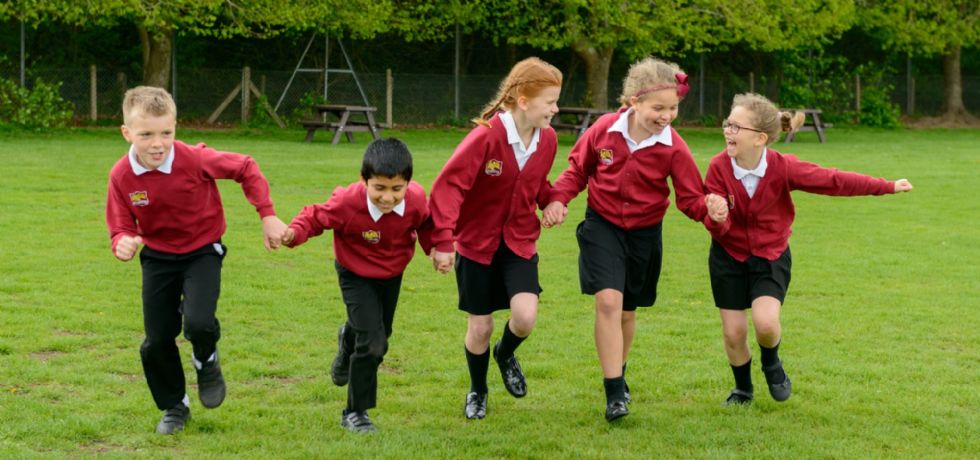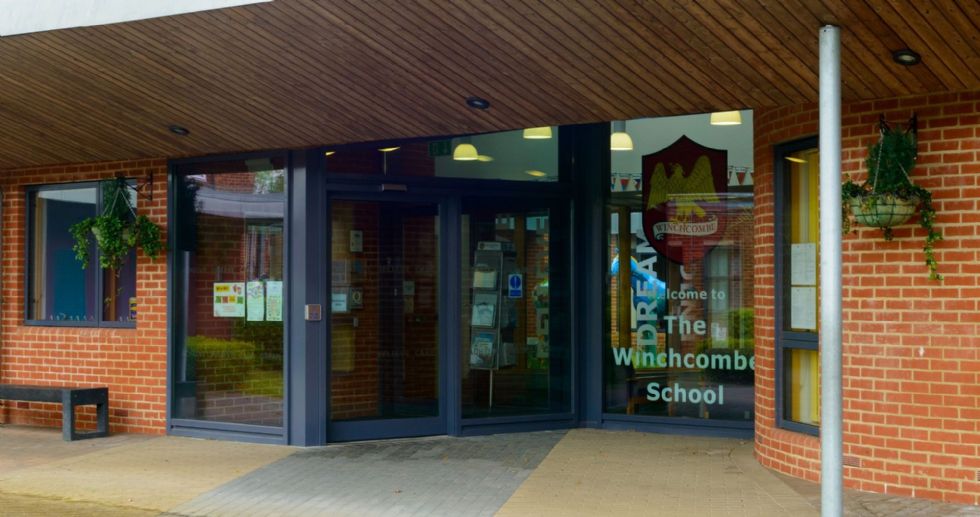English
What is our Philosophy?
At The Winchcombe School, we see English as a language. We strongly believe that spoken language, reading, phonological awareness and spelling drive and help shape the writing process. Our English curriculum develops each child’s love for reading, writing and the spoken language. We immerse pupils in the wonders of quality books to instil a love for reading and writing; a confidence to explore their imagination through chosen texts, suitable for each year group. We believe that children need to develop a secure knowledge-base in language and literacy which helps them to become confident communicators.
What is taught?
Reading and writing are taught and practised daily following the National Curriculum programme of study for each year group. Our English curriculum is taught through the following strands: spoken language, reading, spelling, writing and grammar. Sometimes these strands are taught discretely and other times they are interwoven into the fabric of the rest of the curriculum.
Spoken Language
Starting in Early Years, there is a strong oral approach using a range of resources and techniques. The children are taught through intensive interactions with adults and children. Vocabulary is provided on provision maps as talking tips during interactions with children.
In Foundation Stage 1 they use:
- Chatterboxes
- Story sacks
- Poetry Basket
We use the ECAT (Every Child A Talker) approach when we identify children who will benefit from it. Additionally, we use Makaton alongside songs and stories.
In Foundation stage 2 they use:
- Drawing Club
- Poetry Basket
- Helicopter Stories
- Talking Tips
- CYPIT Narrative language intervention
- Makaton signs
Moving into Key Stage one, children are encouraged to participate in class discussions, to listen to others and to express their ideas. These foundations are further developed in Key Stage two.
Oracy
What is our Philosophy?
At ‘The Winchcombe School’, we see good oracy skills as the basis for improved learning opportunities across the board. We want every child to benefit from an oracy rich environment, every child to have a voice and every child to be empowered with the tools for effective talk. Good speaking and listening skills are vital for learning and we are on a journey towards embedding oracy into all areas of our curriculum. We believe that by building a positive culture of oracy within our school, we can improve our children’s confidence and spoken and written language skills across and beyond the curriculum.
What is taught?
Our aim is for purposeful and effective talk to be firmly embedded in all classrooms with frequent opportunities to develop oracy skills and build their (children’s) confidence in talk, both in formal and informal situations. We intend to take on the Voice 21 framework for oracy, which breaks down the teaching of good speaking and listening skills into four strands:
- Physical
- Cognitive
- Linguistic
- Social and emotional
How is it taught?
Children are given the opportunities to practise a wide variety of talk for different reasons and outcomes and are encouraged to and expected to speak in full sentences. Using previously taught STEM sentences and drawing upon ways to politely challenge the thoughts of peers, children will be empowered to use talk effectively to drive their learning. Through careful and considered planning, teachers will use peer conversations and skilful questioning, as well as a range of oracy-based techniques / tasks to further implement and build upon skills.
A range of purposeful opportunities will be evident in classrooms, including but not exclusively:
- Setting talk guidelines to be referred and adhered to for effective talk (clear eye contact, purposeful and clear listening, taking turns to speak etc.)
- Presentations – on a range of subjects taking many forms, such as paired or group presentations and using visuals as decided by the child/ group.
- Discussions – as a trio, pair or in small groups about a range of topics and within all subjects. E.g. predicting story plots or experiment outcomes, discussing characters’ motives or how to solve problems in maths.
- Debates – with one group for or against a matter of importance and relevance, such as ‘Should primary age children be given homework?’
- Assemblies – class assemblies with the school sharing recent learning.
- School Council meetings – elected children attending meetings to discuss implementing change and sharing with classes the findings and to ask further questions.
- Group work – frequent working in groups for a range of reasons and in all subjects to develop vital cooperation, compromise, negotiation and speaking and listening skills.
- Acting/ role play – acting out stories/ play scripts, performance poetry and imaginative play in Early Years

What does success look like at The Winchcombe School?:
Through the teaching of oracy, children will be able to:
- Recognise the importance of listening to what others say
- Speak fluently and clearly in a range of situations and to a range of audiences
- Effectively explore and discuss a range of ideas through talk
- Use appropriate gestures to aid the delivery of talk
- Adapt how they speak depending on the circumstances, e.g. using standard English when required
- Ask suitable questions to delve deeper into a topic to gain understanding
- Respond appropriately to what others are saying and develop the skills to politely disagree and challenge another speaker
- Share their learning in engaging and suitable ways, demonstrating confidence and fluency when speaking to an audience
Phonics and Spelling
In the foundation stage and Year 1, we follow the Floppy Phonics scheme. Floppy's Phonics is a rigorous, easy-to-use systematic synthetic phonics teaching programme for early reading and writing success. Whole class phonics lessons are taught daily and all children take home worksheets that show the sounds they are learning. Every half term, teachers assess the children’s progress, with groupings taking place when necessary.
In Year 2, children revise and embed phonics taught previously in year 1, before continuing a bespoke spelling programme following the National curriculum spelling objectives.
Families have access to Floppy Phonics interactive program using Oxford Owl class logins. Children are encouraged to share their phonics learning at home.
Key stage 2 children begin following the spelling scheme ‘The Spelling book’ by Jane Considine. Here we have designed daily spelling lessons which teach spelling patterns alongside the statutory spelling lists.
Reading
Early reading starts with the children taking home Floppy phonics decodable books. Alongside this, children read books from the Oxford reading tree colour band, which focus on sentence patterns and common exception words.
We teach guided reading in groups in Key stage 1, children are grouped by ability. This further supports their phonics knowledge. Children read a range of Floppy phonics guided reading books. Once children have completed the phonics scheme, they move onto to age-appropriate books linked to the Oxford Reading scheme.
Whole class guided reading begins in Year 3 and is planned using texts related to the topic or quality books to engage the children’s love for reading. Lessons focus on introducing and explaining new vocabulary, reading for fluency and developing comprehension skills.
Reading for pleasure is developed by:
- Developing reading fluency
- Access to the school library
- Author visits
- Enrichment opportunities such as book clubs, National Storytelling week and World book day
Vocabulary
Understanding and using new vocabulary is central to all aspects of our curriculum. Every year group uses the Frayer Model - a graphic organiser - to help develop each child’s vocabulary understanding. This technique targets key vocabulary from each subject; children learn the meaning of the word, using pictures, illustrations and sentences definitions. They then apply their knowledge by generating examples and non-examples of the word. This helps children to build a richer vocabulary to use in spoken and written language.
Writing
In Foundation stage 2, children have opportunities for mark making through Child Initiated Learning. Teacher led sessions help children apply their phonics into their writing by using the ‘Drawing Club’ approach. Here they will have been taught vocabulary through intentional teaching.
We also use ‘Colourful Semantics’ across the school to help the children break down sentences and look at the meaning and understanding of words by colour coding. This system helps children have a better understanding of word order.
As a whole school we use the ‘Talk for Writing’ approach. Teachers have carefully adapted writing units to suit our children's needs. A wide variety of quality books/texts, experiences and speaking opportunities help motivate and inspire young writers. Grammar and punctuation knowledge and skills are taught through writing lessons as much as possible. Discrete teaching is sometimes used to develop their understanding and skills.
Handwriting
Handwriting is taught daily from Foundation Stage 2 to Year 2. We encourage printing of single letters initially before Year 2 children are taught the pre-cursive style. Once children are ready, they then begin moving on to the continuous cursive style.
Throughout Lower Key Stage 2, handwriting is taught every week. Children build stamina for writing, whilst practising letter joins. Confident Year 4 children, then have the opportunity to start writing in pen.
We believe that all pupils should be encouraged to take pride in the presentation of their writing, in part by developing a joined handwriting style by the time they move to secondary school.
How is progress measured?
Progress is assessed each year against the following aspects:
- Reading: Word Reading and Comprehension
- Writing: Handwriting and Composition
- Spelling
- Punctuation
- Grammar
- Spoken Language
What does success look like at The Winchcombe School?
By the end of Year 6 children will:
- Read easily, fluently and with good understanding and to develop the habit of reading widely and often, for both pleasure and information.
- Appreciate our rich and varied heritage.
- Write clearly, accurately and coherently, adapting their language and style in and for a range of contexts, purposes and audiences.
- Acquire a wide vocabulary, an understanding of grammar and knowledge of linguistic conventions for reading, writing and spoken language.
- Use discussion in order to learn; they should be able to elaborate and explain clearly their understanding and ideas.
- Be competent in the arts of speaking and listening, making formal presentations, demonstrating to others and participating in debate.






